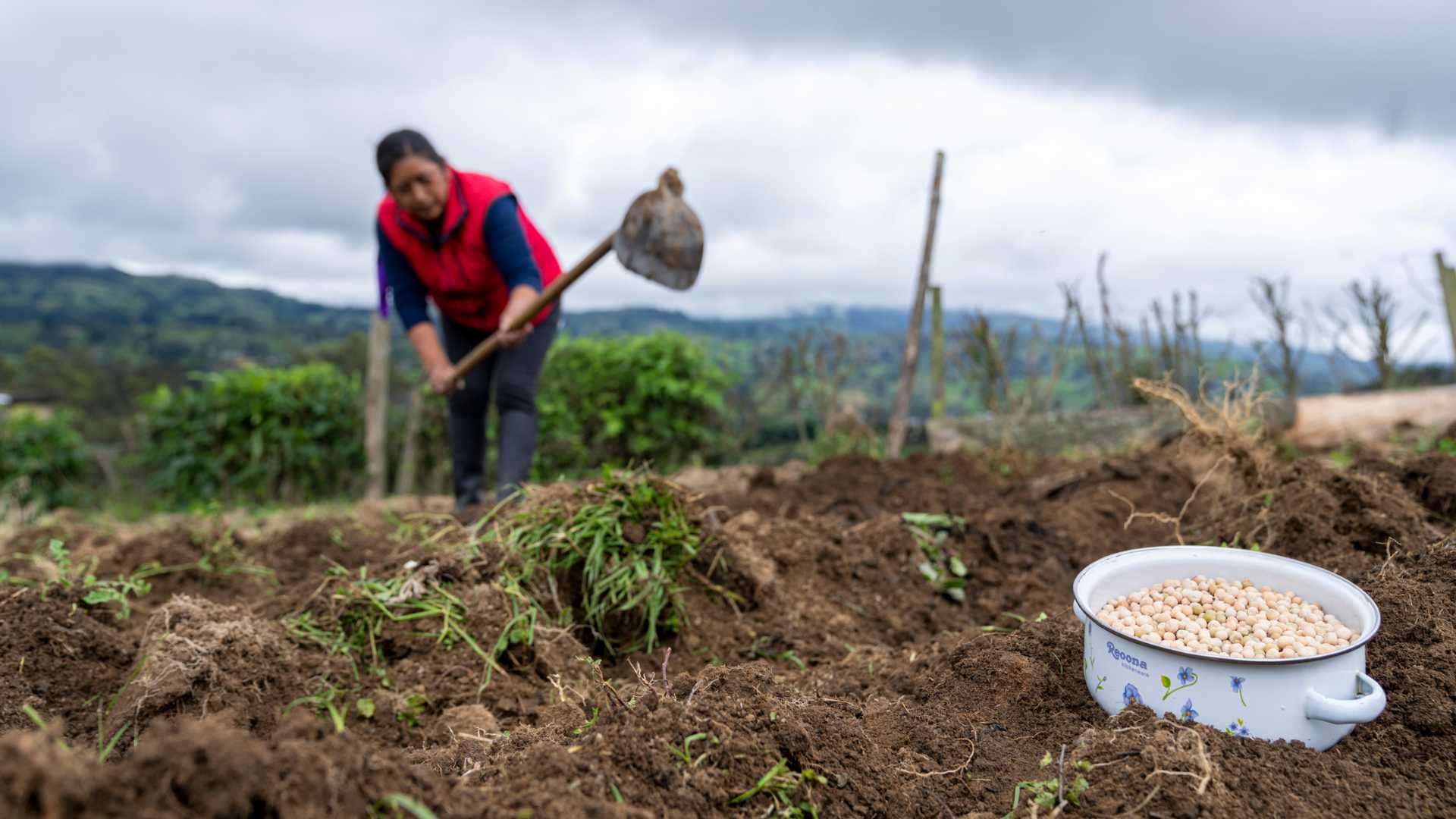Innovation in the microfinance sector to drive climate adaptation for smallholder farming in Ecuador

Climate Finance Annotation
This text is based on the Climate Story titled ‘Innovating the microfinance sector to promote climate adaptation of peasant family agriculture in Ecuador’ which was originally published on the Andes Resilientes website. Please access the original text for more detail.
Summary
While banking entities are increasingly recognizing the impact of climate change on various economic activities in the Andean region, microcredit options tailored to the climate risks faced by smallholder farming families remain relatively limited within the microfinance sector.
Microfinance solutions fail to meet the specific needs of smallholder farmers and their livelihood contexts. For example they include agricultural credits that currently do not consider agricultural calendars. Additionally, one of the most significant limitations in the sector is the lack of capacity to measure non-economic impacts and risks in their investments. Financial products that better consider both the needs of the users and the risks of investment are likely to be more important in supporting climate change adaptation endeavours.
Key messages:
- The Andes Resilientes project, in collaboration with the Ministry of Environment, Water, and Ecological Transition (MAATE), is spearheading a transformative initiative within the framework of the National Climate Financing Strategy (EFIC) to tailor financial products for the unique needs of climate-vulnerable agriculture.
- Between 2021 and 2022, Andes Resilientes focused on generating foundational information, enhancing technical and managerial capacities of savings and credit cooperatives (COACs), and laying the groundwork for fostering climate resilience.
- Currently, a microfinance credit product designed to promote sustainable family agriculture is under development, set to be introduced as part of the product portfolio of the San José savings and credit cooperative.
Innovating the Microcredit Sector
The National Climate Financing Strategy (EFIC) sets an ambitious vision: by 2030, Ecuador aims to mobilize both national and international resources, public and private, to manage climate change and foster resilient development. The Ministry of Environment, Water, and Ecological Transition (MAATE) is committed to educating and empowering the popular and solidarity-based financial sector about climate risks, opportunities, and their pivotal role in climate financing.
In line with this commitment, Andes Resilientes al Cambio Climático project has collaborated with MAATE to establish connections with the microfinance sector, focusing on strengthening financial services that enhance climate resilience for smallholder farming communities. Their joint efforts between 2021 and 2022 encompassed the production and dissemination of foundational information, as well as technical and managerial capacity-building within COACs.
In 2021, the project conducted an extensive mapping of microfinance entities and characterized and analyzed advanced microfinance products in Ecuador. This assessment identified 9 rural COACs offering services relevant to smallholder agriculture in the Andean regions, guiding the prioritization of collaborative spaces. It also revealed that most financial institutions have yet to incorporate climate risk analysis into their product development processes.
The inherent risks microfinance institutions should consider when granting loans to family agriculture can be distilled into five risk dimensions. In 2021, the project also crafted an identification and analysis document profiling the needs of subsistence and transitional smallholder farming families as users or demanders of microfinance products. This effort included the development of tailored agricultural microcredit models linked to climate adaptation.
The collaboration with COACs made significant strides in 2022, strengthening the technical and managerial capacities of three cooperatives (Hermes Gaibor, San José, and Visandes). These cooperatives benefited from institutional bolstering that culminated in the construction and implementation of an Environmental and Social Risk Analysis System (SARAS), including a pivotal climate change component. These efforts facilitated the update of guidelines, manuals, and operational functions within COACs, providing a robust foundation for a more resilient future.
As these cross-sectoral endeavours continue to progress, their outcomes are becoming increasingly tangible. In early 2023, the three COACs unveiled their new SARAS to the Superintendence of Popular and Solidarity Economy (SEPS) and MAATE, marking a significant milestone toward aligning financial management with inclusive environmental sustainability.
Continuing this commitment to the future, Andes Resilientes is currently collaborating with the Network of Development Financial Institutions (RFD) to enhance the technical and managerial capabilities of the San José savings and credit cooperative. This involves the creation and implementation of a microfinance credit product for sustainable agriculture, integrated into the cooperative’s operational and administrative processes.
The vision of a climate-resilient agricultural Ecuador springs to life through these intersectoral and collaborative endeavours. As part of this ever-expanding vision, technical support is envisaged to aid a COAC in providing credits aimed at rural women, aligning with the National Agricultural Strategy for Rural Women (ENAMR) driven by the Ministry of Agriculture and Livestock (MAG).
As the Andean country moves towards an agriculturally resilient future in the face of climate change, these collaborative efforts pave the way for a promising journey of adaptation and growth.
The Andes Resilientes al Cambio Climático project, facilitated by the HELVETAS Swiss Intercooperation-Avina Foundation consortium and funded by Swiss Cooperation COSUDE, supports the Ministry of Environment, Water, and Ecological Transition (Ecuador) under Result 1.1 of Climate Financing and Microfinance. This collaboration involves technical assistance to improve public financing products and services and facilitate private financing with a focus on the climate-vulnerable smallholder farming communities in the Andean regions. Get to know more about this regional project that works in Ecuador, Bolivia and Peru at www.andesresilientes.org (only available in Spanish)
Related resources
- Community governance to conserve moor water as an adaptation measure in Ecuador
- CDKN: Finance for Resilience Podcast
- Bottom-Up Innovation for Adaptation Financing
- Barriers, incentives and benefits in the adoption of climate-smart agriculture
- Andes Resilientes al Cambio Climático Project (Resilient Andes to Climate Change)
- Financing for Andean Forests: experiences and challenges
(0) Comments
There is no content